Circular Fashion News / July 21: Circular Fashion Index, Textile recycling funding, New clothes sharing app
Last week: a report on key pathways for the fashion industry's decarbonization, the 2025 Circular Fashion Index, funding for recycled and next-gen materials, and a new clothes sharing app.
Welcome to reading a weekly recap of circular fashion news! Some of last week’s highlights in the circular fashion industry included:
A report by Bain & Company highlighting key pathways for the fashion industry to decarbonize
A study on the value chain of collected secondhand clothes
Next-gen material startup Brightplus raised €2 million
Reju partnered with Circle-8 Textile Ecosystems for feedstock supply
Debrand received $325k grant to explore reuse options for plastic-based apparel
Material recycling company Gen Phoenix raised $15 million
This section highlights major news impacting the entire circular fashion industry, studies and reports about the state of the industry, current regulation landscape, as well as studies and data about consumer behaviour in the circular fashion market.
Circular Fashion Index 2025: Most brands are stuck in pilot phases
Kearney published its 2025 Circular Fashion Index, tracking how far fashion brands are in adopting circular business models. The index analyzed 246 companies across 18 countries. Key findings include:
77% of brands have taken only moderate steps toward circular design.
88% are not involved in rental or are only running pilots, and just 1% have significant rental programs.
69% are not meaningfully engaged in resale or are only piloting, and only 5% have substantial secondhand programs.
65% offer no or only pilot repair services, and just 6% provide extensive repair options.
The report identifies four main barriers to scaling circularity:
Scalability: Most initiatives remain stuck in pilot stages.
System integration: Circularity is not embedded across functions like design, procurement, and logistics.
Lack of business case: Many brands struggle to justify circularity without short-term financial returns.
Operational gaps: Fragmented or missing infrastructure, such as reverse logistics, repair networks, and resale partnerships, hinders progress.
Bain & Company: Decreasing overproduction and scaling resale the most effective ways for fashion to decarbonize
A report by Bain & Company maps effective actions for fashion brands to achieve their decarbonization targets while enhancing business performance.
The report highlights that both fashion apparel and luxury brands need to reduce production volumes to cut emissions, and that AI-powered demand forecasting and inventory optimization are key tools to make that possible.
In addition, for luxury brands in particular, scaling resale is named as a high-impact lever, but only if it leads to fewer new items being produced and sold. The report also emphasizes that resale becomes a viable business opportunity for brands when done through in-house programs, rather than third-party platforms.
Study: The value chain of secondhand clothes collected in Sweden
A study conducted by Sweden’s IVL Environmental Research Institute and commissioned by Humana Lithuania maps the value chain of used clothing collected in Sweden and imported into Kenya.
The study highlights key players, circularity gaps, and opportunities to strengthen local sorting and recycling infrastructure, and aims to inform better policy and investment decisions around textile reuse and waste.
This section highlights news, collaborations, reports and studies in the space of fashion rental. To get an overview of what has happened in the fashion rental space recently, check out the Fashion Rental Report Q1/Q2 2025.
Rent the Runway increases prices
Rent the Runway announced that they will be increasing rental subscription prices from August 2025 onwards. The price increases vary between 8% and 17%, depending on the subscription.
New clothes sharing app, Clique, is being launched
Clique, a new “social style network”, is being launched. The app will allow clothes sharing through users’ first- and second-degree connections. Currently, Clique is focused on womenswear and accessories, and operates on an invite-only basis.
→ Read more
→ Join Clique waitlist here
This section highlights news, collaborations, reports and studies in the space of fashion repair as well as upcycling.
Études Studio and Freitag collaborate for an upcycled collection
Paris-based RTW brand Études Studio, and upcycled bag brand Freitag have collaborated for a special collection of messenger bags. The bags are upcycled from used truck tarps (Freitag's signature material) in selected shades of blue and star prints (Études Studio's signature color and pattern).
This section highlights news, collaborations, reports and studies in the space of next-gen materials as well as technologies and strategies that help brands design out waste, rethink production systems, and build with longevity, repairability, and recyclability in mind.
Next-gen material startup Brightplus raised €2 million
Finnish-based Brightplus has developed BrightBio® textile coating from food and forest industry side streams. The coating offers textile protection with customizable performance, while allowing recycling of the coated textiles. Now, Brightplus has raised €2 million in funding for development and industrial scaling.
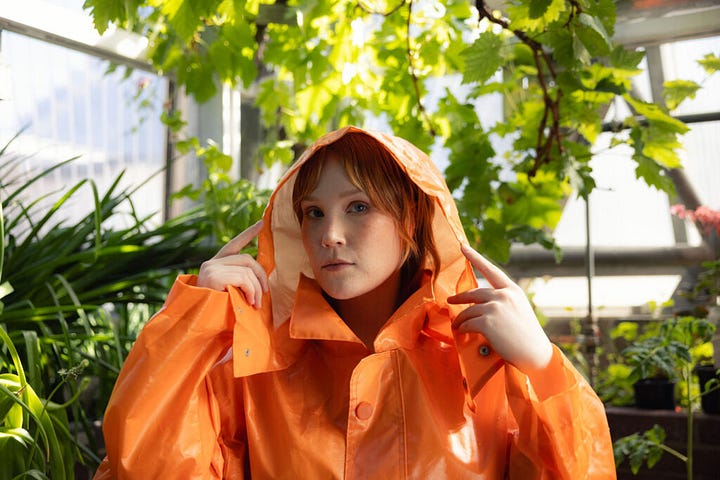
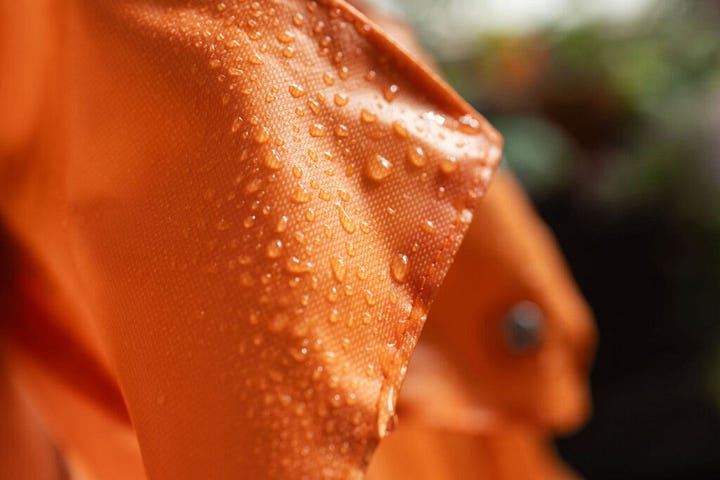
This section highlights news, collaborations, reports and studies in the space of textile-to-textile recycling.
Sweden eases textile recycling guidelines
Sweden has announced it will ease its textile recycling guidelines after the introduction of a new EU regulation in early 2025. The EU regulation requires all member states to implement separate collection of textile waste, which has quickly overwhelmed Sweden’s recycling facilities.
“Since the start of the year, the amount of textile waste collected has increased significantly, and with it the costs of sorting,” the Swedish government stated. Under the revised guidelines, Sweden now clarifies which textiles must be sorted for recycling and which can be discarded as waste (such as torn socks, stained fabrics, and heavily worn clothing).
Reju partnered with Circle-8 Textile Ecosystems for feedstock supply
Textile-to-textile recycling company Reju has partnered with Circle-8 Textile Ecosystems for feedstock supply. Circle-8 Textile Ecosystems will provide Reju's European Regeneration Hubs with post consumer textile waste. The post-consumer textile waste will be processed through Circle-8 Automated Textile Sorting and Preprocessing (ATSP) facility.
Material recycling company Gen Phoenix raised $15 million
Gen Phoenix secured $15 million in a funding round led by Material Impact. As part of the deal, Tapestry (owner of Coach, Kate Spade & Stuart Weitzman) increased its equity stake in Gen Phoenix to 9.9%, nearly quadrupling its initial 2023 investment, and signed a 3‑year supply agreement for recycled leather fiber.

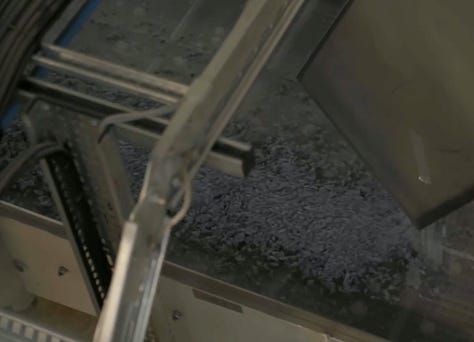
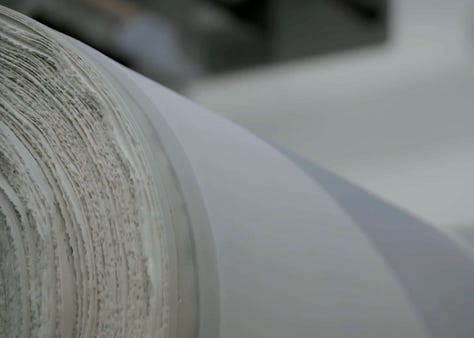
Debrand received $325k grant to explore reuse options for plastic-based apparel
Debrand, a Canadian company specializing in circular end-of-life solutions for apparel, has received $325k grant from the CleanBC Plastics Action Fund.
The funding will support a new R&D initiative focused on finding reuse and recycling pathways for plastic-based textiles currently considered non-reusable. The project aims to better understand the operational and economic requirements needed to prepare apparel items for appropriate reuse and recycling pathways.
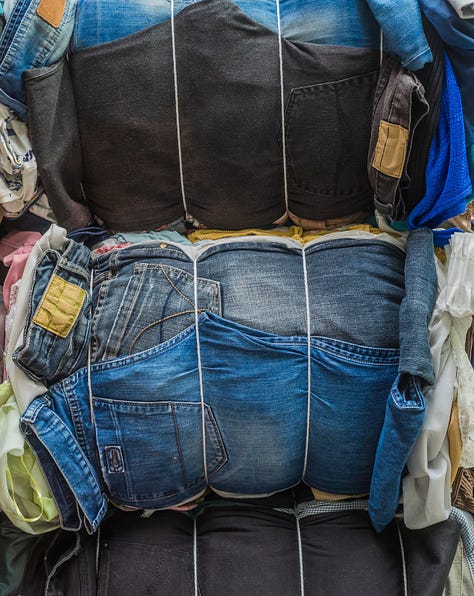
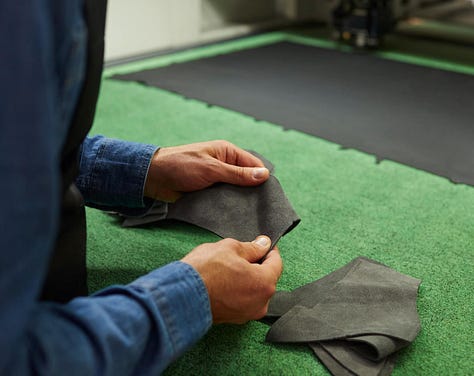
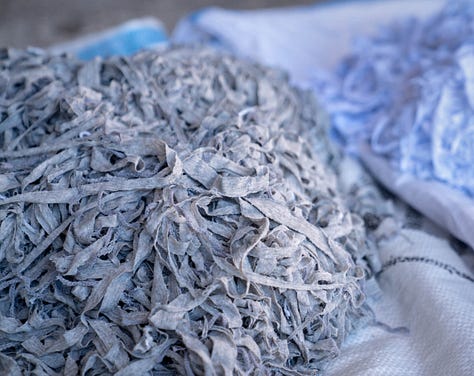
That is all for now, let’s hear again next week! In the meantime, let’s continue the discussion in the comments, LinkedIn, or Instagram <3
xx Tiina























This was a lot of great news this week! I especially loved the Decarbonizing Fashion article, using realistic economics to show how brands can decarbonize in a way that's good for business. it found that 2 main areas where fashion brands can couple decarbonization with business strategy is by reducing overproduction & limiting online returns. AI may be helpful in this through demand forecasting, which would reduce the waste in producing products that don't sell, as well as ensure online clothing is most accurately portrayed to reduce returns. And of course, that would inevitably help business for brands by cutting unnecessary production & costs. Super great info there!!!